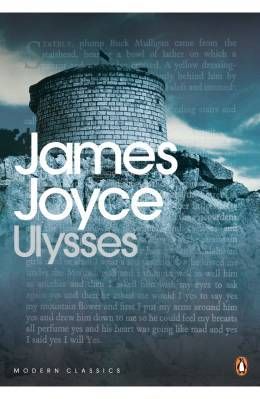“The trouble was, I had been inadequate all along, I simply hadn't thought about it.”
Esther Greenwood is a young college girl who travels to New York for a publishing job, has a rotten time assimilating into this new life, undergoes a mental breakdown, attempts suicide, is thrown into a psychiatric ward, receives shock-treatment and once deemed healthy enough by her doctors, she is released back into the world. Whether or not she will succumb to her mental illness again remains uncertain. Not exactly your typical feel-good novel. Plath is uncompromising, successfully conveying the despair, gloom, helplessness and downward mental spiral of her protagonist with bleak overtones, which makes the story a unsettling reading experience.
As someone who has battled with depression for many years, Sylvia Plath's The Bell Jar hits very close to home. Of course, it's difficult to resist the urge in making parallels between the story and the author's own troubled personal life, especially pertaining to her history with mental illness. Published soon after her suicide, the novel is eerily autobiographical in nature but an overwhelming amount of scholarly effort has already been expended on this particular subject matter. Thus, my aim with this review is to convey my own personal reflections and determine whether or not The Bell Jar is worthy of its iconic status. In short, the novel doesn't quite live up to its reputation--the narrative is often dull and disjointed; it lacks a sense of cohesiveness. Of course, one could make the argument that Plath's aesthetic is deliberate; her sporadic prose is supposed to reflect the protagonist's fragmented state of mind as she descends into madness. Plath is a wonderful poet and a superb writer of letters, but she doesn't seem to hit her stride as a novelist. However, Esther Greenwood is such an empathetic character, which makes it easier for me to overlook the narrative discrepancies. I found myself connecting with Esther on a deeply personal level because many of her thoughts and experiences mirror my own: cynicism, depression, attempted suicide, hopelessness, misanthropy, shame, personal inadequacies, loneliness, social alienation, disillusionment, the obsession with death. She feels like a kindred spirit and I just wanted to give her a warm hug and tell her that everything will be ok. You'll get through this Esther, I'm here for you. You're not alone.
Plath should be applauded for her honest depiction and keen insight into a neurotic psyche. Only someone who suffered from mental illness and severe depression could have written such an accurate portrayal of being stuck in the hell of one's own mind. The novel is also rather forthright in its feminist ideologies and a great deal of analysis can be focused on the exploration of gender inequality. Plath infuses so much of her own personal life, painful experiences, and somber reflections into the novel, which is truly admirable.
The sum of its parts are greater than the whole, containing a plethora of powerful aphorisms and astounding golden nuggets of wisdom. Here are a few of my favorites:
“There is something demoralizing about watching two people get more and more crazy about each other, especially when you are the only extra person in the room. It's like watching Paris from an express caboose heading in the opposite direction--every second the city gets smaller and smaller, only you feel it's really you getting smaller and smaller and lonelier and lonelier, rushing away from all those lights and excitement at about a million miles an hour" (17).
Wow, she really understands what it feels like to suffer from loneliness. I've always been an outsider, stuck on the sidelines, an observer, detached from the world. Hence, relationships are foreign to me. I'm not exactly envious of others who find happiness through love; rather, it is the despair that comes with being completely incapable of making those personal connections. The thought of never experiencing love and dying alone is quite disheartening.
"If you expect nothing from somebody, you are never disappointed" (63).
I feel ya there, Esther/Sylvia. I have placed way too much trust in people and only ended up getting hurt in the end. They either let me down in some way, put up a front, or stab me in the back. I've lost faith in humanity.
Wherever I sat—on the deck of a ship or at a street café in Paris or Bangkok—I would be sitting under the same glass bell jar, stewing in my own sour air" (195).
The bell jar is obviously an important metaphor in the novel but it is used expertly by Plath to convey the debilitating anxiety of being trapped in the madness of one's own mind. Paradoxically, the bell jar is a defense mechanism against a hostile world so it's no surprise that suicidal tendencies are inevitable.
"I saw my life branching out before me like the green fig tree in the story. From the tip of every branch, like a fat purple fig, a wonderful future beckoned and winked. One fig was a husband and a happy home and children, and another fig was a famous poet and another fig was a brilliant professor, and another fig was Ee Gee, the amazing editor, and another fig was Europe and Africa and South America, and another fig was Constantin and Socrates and Attila and a pack of other lovers with queer names and offbeat professions, and another fig was an Olympic lady crew champion, and beyond and above these figs were many more figs I couldn't quite make out. I saw myself sitting in the crotch of this fig tree, starving to death, just because I couldn't make up my mind which of the figs I would choose. I wanted each and every one of them, but choosing one meant losing all the rest, and, as I sat there, unable to decide, the figs began to wrinkle and go black, and, one by one, they plopped to the ground at my feet" (81).
Story of my life.

























